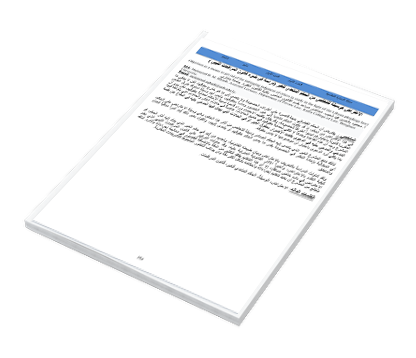Objection as a means to get rid of the infringing judgment of others (a study in the light of the Libyan pleadings law)
DOI:
https://doi.org/10.37376/asj.vi1.1782Keywords:
objection, means, infringing judgment of others, pleadings law.Abstract
It is assumed that the judicial ruling is an argument limited to the parties to the litigation and does not exceed what is outside its scope, but it is not hidden that the ruling is in this presumption, as the judgment may infringe upon the litigants and affect their rights, and they have no means to conduct the legally determined methods of appeal as they are not parties to the litigation It may be said that it suffices for them to hide behind a rule of relativism provisions to protect their rights, but it seems that the legislator has found that this rule alone is not sufficient to protect their rights in all cases, especially in cases of fraud and cases in which the plaintiff and the defendant collude in the lawsuit with the intention of harming the rights of others or in cases where In it, the defendant neglects sufficiently in his defence to dismiss the lawsuit, given that its subject matter does not affect his rights.
Therefore, the legislator has given third parties to whom the ruling is violated a means to get rid of the effects of this ruling, and it is a means of objecting to the judgment, that is, demanding to reconsider the dispute to the extent that the ruling affects their rights or infringes on them, and saying otherwise is contrary to justice and logic.
The study dealt with defining the objection and explaining its legal nature, determining who is considered in the judgment of others to which the effects of the judgment are extended, then how to file an objection, and finally the legal implications of it.The organization lacks much accuracy in addition to deficiencies in dealing with its procedures and effects.Therefore, we are looking for the legislator to reorganize its procedures and provisions more accurately and to keep pace with the remarkable development of comparative legislation.
Downloads

Downloads
Published
How to Cite
Issue
Section
License
Copyright (c) 2022 Almanara Scientific Journal

This work is licensed under a Creative Commons Attribution-NonCommercial-NoDerivatives 4.0 International License.







